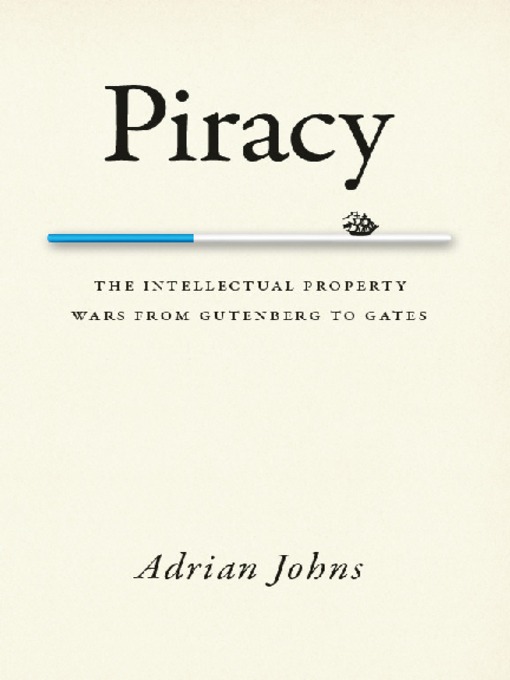
Piracy
The Intellectual Property Wars from Gutenberg to Gates
کتاب های مرتبط
- اطلاعات
- نقد و بررسی
- دیدگاه کاربران
نقد و بررسی

January 11, 2010
The recording industry’s panic over illegal downloads is nothing new; a century ago, London publishers faced a similar crisis when “pirate” editions of sheet music were widely available at significantly less cost. Similarly, the debate over pharmaceutical patents echoes an 18th-century dispute over the origins of Epsom salt. These are just two of the historical examples that Johns (The Nature of the Book
) draws upon as he traces the tensions between authorized and unauthorized producers and distributors of books, music, and other intellectual property in British and American culture from the 17th century to the present. Johns’s history is liveliest when it is rooted in the personal—the 19th-century renegade bibliographer Samuel Egerton Brydges, for example, or the jazz and opera lovers who created a thriving network of bootleg recordings in the 1950s—but the shifting theoretical arguments about copyright and authorial property are presented in a cogent and accessible manner. Johns’s research stands as an important reminder that today’s intellectual property crises are not unprecedented, and offers a survey of potential approaches to a solution. 40 b&w illus.

February 1, 2010
Johns (history, Univ. of Chicago; "The Nature of the Book") meticulously demonstrates how the meaning of intellectual piracythe appropriation of ideas and inventions without recompensehas changed over time. Related to product counterfeiting and patents, this unacknowledged borrowing has a history beginning with the printed book, with a legal copyright dimension first arising in 18th-century England. Johns suggests that piracy has often furthered progress by spreading ideas more widely, although it also undermines authenticity and has slowed the creation of new works. In America, piracy followed the territorial and industrial pattern of national development, e.g., uncompensated usurpation. Johns subtly points out the special component of illicit cribbing, with cross-border publications from Scotland and Ireland distressing authors in pre-U.K. England much as pirated items from China now perturb American producers. The author is both thorough and digressive to a degree that the general reader might not appreciate or readily comprehend without considerable prior knowledge and a dictionary. VERDICT Uniquely addressing copyright piracy from print to digital formats in a worldwide, historical context (albeit primarily concentrating on Anglo-America), this complex, fully annotated, rarefied study will find favor with serious readers, especially social, cultural, and scientific historians.Frederick J. Augustyn Jr., Library of Congress
Copyright 2010 Library Journal, LLC Used with permission.

























دیدگاه کاربران